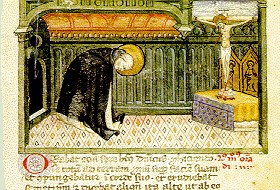Podcast: Play in new window | Download (Duration: 28:09 — 25.9MB) | Embed
Subscribe: Apple Podcasts | Spotify | Amazon Music | Android | Pandora | iHeartRadio | JioSaavn | Podchaser | Gaana | Podcast Index | Email | TuneIn | Deezer | Anghami | RSS | More

Anne Costa – Embracing Edith Stein on Inside the Pages with Kris McGregor
In this episode of “Inside the Pages”, Kris McGregor and Anne Costa discuss Anne’s book, Embracing Edith Stein: Wisdom for Women from St. Teresa Benedicta of the Cross, which aims to introduce Edith Stein’s rich spirituality to a broader audience and her significance for women today.
Describing Edith Stein’s life, from her birth in Germany as the youngest of 11 children, through her rise as a prominent philosopher, to her eventual conversion to Catholicism inspired by the writings of St. Teresa of Avila and the example of devout Catholics; Edith’s intellectual journey was marked by a deep pursuit of truth, which eventually led her to Catholicism and a vocation as a Carmelite nun.
Edith’s writings, particularly on the nature and mission of women, are highlighted as deeply relevant today. Her thoughts on the complementarity of men and women, the importance of self-possession for women, and the need to balance intellectual and spiritual life resonate strongly in contemporary times. The podcast underscores how her wisdom, grounded in both personal experience and profound faith, offers practical guidance for modern women.
You can find the book here.
Discerning Hearts Reflection Questions
- Encountering Truth in Our Lives: How do I seek truth in my daily life, and am I open to the possibility that true wisdom may come from an encounter with Christ rather than just intellectual pursuit?
- Embracing Our Feminine Gifts: In what ways can I better understand and utilize my unique gifts as a woman, according to God’s design, to serve my family and community?
- The Cross and Suffering: How do I perceive and carry my own crosses, and can I learn from St. Edith Stein’s example to embrace suffering with hope and trust in God’s ultimate triumph?
- Role of Prayer in Daily Life: Do I prioritize time for prayer in the midst of my daily responsibilities, allowing God to order my day and give me the strength to fulfill my duties?
- Influence of Saints on Our Spiritual Journey: How can I foster a deeper relationship with the saints, particularly St. Edith Stein, to guide and support me in my spiritual growth during challenging times?
 From the book description:
From the book description:
“Embracing Edith Stein shows how the different aspects of the life and teachings of St. Teresa Benedicta of the Cross can serve as a guide for women and their unique vocation today. Written in a friendly, conversational style, this is one woman sharing the story of her friendship with this saint with her readers.”
About the Author
Anne Costa is a Catholic author and speaker with five books published including Embracing Edith Stein: Wisdom for Women from St. Teresa Benedicta of the Cross (Servant) and Refresh Me Lord! Meditations to Renew a Women’sSpirit (The Word Among Us Press). She works with two apostolates: Sacred Heart Apostolate, Inc. as communications officer and the John Paul II Center for Women, Inc. Anne is a wife and mother, and enjoys traveling, painting and Eucharistic adoration.

 Holy teachers like Augustine, Ambrose, Gregory, Hilary, Isidore, John Chrysostom, John Damascene, Bernard, and other saintly Greek and Latin doctors have discoursed on prayer at great length. They have encouraged and described it, pointed out its necessity and value, explained the method, the dispositions which are required, and the impediments which stand in its way. In learned books, the glorious and venerable doctor, Brother Thomas Aquinas, and Albert, of the Order of Preachers, as well as William in his treatise on the virtues, have considered admirably and in a holy, devout, and beautiful manner that form of prayer in which the soul makes use of the members of the body to raise itself more devoutly to God. In this way the soul, in moving the body, is moved by it. At times it becomes rapt in ecstasy as was Saint Paul, or is caught up in a rapture of the spirit like the prophet David. Saint Dominic often prayed in this way, and it is fitting that we say something of his method.
Holy teachers like Augustine, Ambrose, Gregory, Hilary, Isidore, John Chrysostom, John Damascene, Bernard, and other saintly Greek and Latin doctors have discoursed on prayer at great length. They have encouraged and described it, pointed out its necessity and value, explained the method, the dispositions which are required, and the impediments which stand in its way. In learned books, the glorious and venerable doctor, Brother Thomas Aquinas, and Albert, of the Order of Preachers, as well as William in his treatise on the virtues, have considered admirably and in a holy, devout, and beautiful manner that form of prayer in which the soul makes use of the members of the body to raise itself more devoutly to God. In this way the soul, in moving the body, is moved by it. At times it becomes rapt in ecstasy as was Saint Paul, or is caught up in a rapture of the spirit like the prophet David. Saint Dominic often prayed in this way, and it is fitting that we say something of his method. Saint Dominic’s first way of prayer was to humble himself before the altar as if Christ, signified by the altar, were truly and personally present and not in symbol alone. He would say with Judith: “O Lord, God, the prayer of the humble and the meek hath always pleased Thee [Judith 9:16]. “It was through humility that the Canaanite woman and the prodigal son obtained what they desired; as for me, “I am not worthy that Thou shouldst come under my roof” [Matt. 8:8] for “I have been humbled before you exceedingly, O Lord [Ps. 118:107].:
Saint Dominic’s first way of prayer was to humble himself before the altar as if Christ, signified by the altar, were truly and personally present and not in symbol alone. He would say with Judith: “O Lord, God, the prayer of the humble and the meek hath always pleased Thee [Judith 9:16]. “It was through humility that the Canaanite woman and the prodigal son obtained what they desired; as for me, “I am not worthy that Thou shouldst come under my roof” [Matt. 8:8] for “I have been humbled before you exceedingly, O Lord [Ps. 118:107].:










